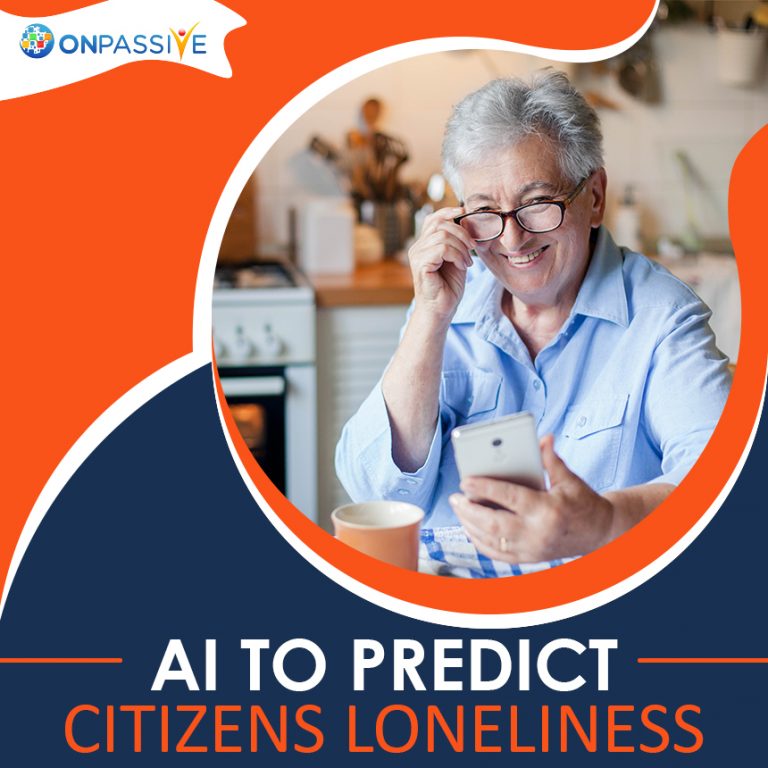
One of the most significant worries seniors express when they live alone is that they might fall over in their home, and no one will even realize it. AI-powered devices that can predict and prevent falls are evolving every day. This might present seniors with the self-confidence to leave the house, instead of fearing to fall and being a prisoner at home.
Researchers have applied artificial intelligence to predict loneliness in tenants at a senior housing community accurately. Publishing in the American Journal of Psychiatry, researchers could embrace the power of natural language processing (NLP) and machine learning models to analyze speech sentiments and emotions.
When the coronavirus pandemic is pushing people towards social isolation, this study could prove critical in serving the society to evaluate and address widespread loneliness. Nevertheless, while technology provides ever-more-potent ways of recognizing societal issues like loneliness, it remains uncertain whether technology alone can resolve such concerns related to senior citizens and COVID 19 pandemic.
For the study’s objectives, the researchers questioned nearly 80 tenants, and they asked questions intended to measure several aspects of loneliness, with the answers being deciphered and then analyzed through “expressed emotions and quantify sentiment.”
Analyzing Loneliness
These analytic approaches work by scanning for the frequency of phrases and words used in responses and giving scores for the sentiment (-1.0 to 1.0) and emotion (0.0 to 1.0). The scores given by AI in the research were analyzed against manual assessments to evaluate their efficiency.
In their discussion of the outcomes, the researchers observed that the machine learning models they employed were surprisingly accurate. These models could foretell qualitative loneliness with nearly 94% accuracy and quantitative loneliness with nearly 76% precision.
Implications of AI for the Future
In other words, AI in research is almost as good as certified clinicians in predicting isolation. As the authors state, in conclusion, this could have significant implications for the future: “NLP and machine learning models can be scaled up to manage thousands of interviews and can present consistent ratings that might not be feasible with human raters.”
The authors also envisioned a future situation where artificial intelligence-driven services could prove helpful to individuals, without any direct involvement of humans. Ultimately, complicated AI-based systems could intervene in real-time to help individuals reduce their loneliness by managing social stress, adopting positive cognitions, and engaging in meaningful social activities.
However, while AI in research certainly has a future in the large-scale discovery of loneliness (and other emotional states) in citizens and populations, it’s debatable whether it can be a meaningful part of the remedy.
Shortcomings of AI Technology
The research paper affirms that the overall rate of loneliness among participants was nearly 45%, with numerous reporting a shortage of instrumental and emotional support. This lack isn’t something that AI-driven systems can solve. Indeed, loneliness is a fundamentally social concern, and it can only be resolved with social solutions and transformations.
Simply put, it’s excellent that AI in research could theoretically recognize every single isolated or lonely person on the planet. But what can a tech-driven approach do to overcome such isolation? The answer is “minimal,” though it could be debated.
This point is critical as we all frequently see technological innovations in mental health examinations–or physiological health examinations–championed as if they were genuinely treating the associated conditions. But while virtual reality, AI in research, and other technologies can undoubtedly be applied to detect problems, we must also remember that a tech shortage doesn’t cause most of our problems.
Instead, most of our problems arise from a complicated network of events and circumstances. Most of these conditions and circumstances are economic, social, and political. As such, they will only admit solutions that are similarly economic, social, and political.
Another use for artificial intelligence
AI in research can also help discover illness in older adults, empowering them to live more freely and more extended periods. Researchers are also building prototype living spaces, called smart homes, to study how they might look and operate shortly for older adults, people with physical inabilities, and those who have chronic diseases.
The purpose is to enable people to live safely, freely, and conveniently for longer in assisted living with technology.
Final Thoughts
This refers to loneliness, which is not only on the rise but probably a symptom of life in the more increasingly competitive and individualistic approach in the 21st Century. If we’re truly serious about loneliness, we must look cautiously at what aspects of our age cause isolation and change them subsequently. Or else, merely applying AI in research-driven approaches to determine and diagnose loneliness will result in a little more than another money-making activity.



Jon Wright
4 years ago
Ashley John Morrell
4 years ago